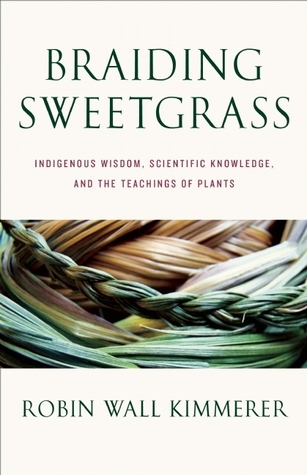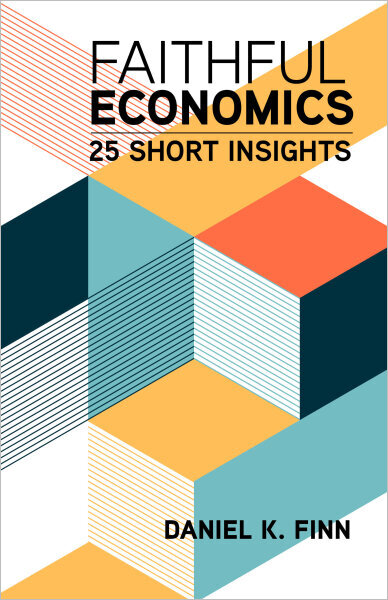
CSU+ is an online borrowing system available to all faculty, students, and staff at CSU Stanislaus. Books will be delivered to the library at Turlock or Stockton in 2-3 days. More information about CSU+ can be found here.
Librarians are skilled at helping students find books and articles needed for research. If you are not finding what you need, ASK!

By now a modern classic, The Gift is a brilliantly orchestrated defense of the value of creativity and of its importance in a culture increasingly governed by money and overrun with commodities. This book is even more necessary today than when it first appeared. An illuminating and transformative book, and completely original in its view of the world, The Gift is cherished by artists, writers, musicians, and thinkers. It is in itself a gift to all who discover the classic wisdom found in its pages.

Sacred Economics traces the history of money from ancient gift economies to modern capitalism, revealing how the money system has contributed to alienation, competition, and scarcity, destroyed community, and necessitated endless growth. Today, these trends have reached their extreme--but in the wake of their collapse, we may find great opportunity to transition to a more connected, ecological, and sustainable way of being.

Drawing on her life as an indigenous scientist, a mother, and a woman, Kimmerer shows how other living beings—asters and goldenrod, strawberries and squash, salamanders, algae, and sweetgrass—offer us gifts and lessons, even if we’ve forgotten how to hear their voices. In a rich braid of reflections, she circles toward a central argument: that the awakening of a wider ecological consciousness requires the acknowledgment and celebration of our reciprocal relationship with the rest of the living world.

Ambitiously tackling the nature of economic life and how to study it comparatively, Stone Age Economics includes six studies that reflect the author's ideas on revising traditional views of hunter-gatherer and so-called primitive societies, revealing them to be the original affluent society.

Since its publication in 1977, The Unsettling of America has been recognized as a classic of American letters. Wendell Berry argues that good farming is a cultural and spiritual discipline. Today’s agribusiness, however, takes farming out of its cultural context and away from families. As a result, we as a nation are more estranged from the land―from the intimate knowledge, love, and care of it. Sadly, his arguments and observations are more relevant than ever.

Dr Ostrom uses institutional analysis to explore different ways - both successful and unsuccessful - of governing the commons. In contrast to the proposition of the 'tragedy of the commons' argument, common pool problems sometimes are solved by voluntary organizations rather than by a coercive state. Among the cases considered are communal tenure in meadows and forests, irrigation communities and other water rights, and fisheries.

A Paradise Built in Hell is an investigation of the moments of altruism, resourcefulness, and generosity that arise amid disaster's grief and disruption and considers their implications for everyday life. It points to a new vision of what society could become-one that is less authoritarian and fearful, more collaborative and local.

Tracing 60,000 generations, Everett debunks long- held theories across a spectrum of disciplines to affirm the idea that we are not born with an instinct for language. Woven with anecdotes of his nearly forty years of fieldwork amongst Amazonian hunter- gatherers, this is a “completely enthralling” (Spectator) exploration of our humanity and a landmark study of what makes us human.

This book lays out an alternative path showing that conscious attention to relationships among humans and the natural world creates flourishing social-ecological economies. Author draws on examples from North and South America, Aotearoa/New Zealand, and Australia to argue that Indigenous worldviews centering care and good relationships provide critical and sustainable economic models in a world under increasing pressure from biodiversity loss and climate change.

A classic exposé in company with An Inconvenient Truth and Silent Spring, The Story of Stuff expands on the celebrated documentary exploring the threat of overconsumption on the environment, economy, and our health. Leonard examines the “stuff” we use everyday, offering a galvanizing critique and steps for a changed planet.

affluenza, n. a painful, contagious, socially transmitted condition of overload, debt, anxiety, and waste resulting from the dogged pursuit of more. We tried to warn you! The 2008 economic collapse proved how resilient and dangerous affluenza can be. Now in its third edition, this book can safely be called prophetic in showing how problems ranging from loneliness, endless working hours, and family conflict to rising debt, environmental pollution, and rampant commercialism are all symptoms of this global plague.

Our drive to consume evolved from our ancestors' drive to survive. But the psychological and neural processes that originally evolved to guide mammals toward resources that are necessary but scarce may mislead us in modern conditions of material abundance. Such phenomena as obesity, financial bubbles, hoarding, and shopping sprees suggest a mismatch between our instinct to consume and our current environment. This volume brings together research from psychology, neuroscience, economics, marketing, animal behavior, and evolution to explore the causes and consequences of consumption.

The aim of the Circular Economy is to decouple economic growth from resource and energy use through iterative, systemic social, economic and technological reform. This book presents new theoretical and practical insights into this concept, based on case studies from both the developing and developed world, with an emphasis on economic and material transformation, design for reuse and waste reduction, industrial ‘symbiosis’ (the planned circulation of resources and energy within an industrial setting), and social innovation and entrepreneurship.

This collection argues that environmental sustainability, indigenous political empowerment and economic viability will succeed only by taking account of distinct local contexts and cultures. In this regard, these Pacific indigenous case studies offer ‘islands of hope’ for all communities marginalized by increasingly intrusive—and increasingly rapid—technological changes and by global dietary, economic, political and military forces with whom they have no direct contact or influence.

Careful moral reflection and action are important across all of modern life, but they are especially critical when it comes to our place as individuals and communities in matters of economics. We know intuitively that our daily decisions about money and markets have a deep impact on others, but it is easy to become overwhelmed and confused or, worse, to feel as if our actions don't make a difference. Faithful Economics is the ideal guide for navigating this complex arena and coming to a deeper understanding of how our faith and our economic lives intersect.

Economics is probably the most subtle, precise and powerful of the social sciences and its theories have deep philosophical import. Yet the dominant alliance between economics and philosophy has long been cheerfully simple. This is the textbook alliance of neo-Classicism and Positivism, so crucial to the defense of orthodox economics against by now familiar objections. This is an unusual book and a deliberately controversial one. The authors cast doubt on assumptions which neo-Classicists often find too obvious to defend or, indeed, to mention.

Provides an in-depth analysis of consumerism drawn from a wide range of theoretical, clinical, and methodological approaches. Demonstrates the effects of such influences as advertising, consumption, and materialism on personal, social, and ecological well-being on many levels. Exhibits ways to counteract these negative effects.
Learn how to use OneSearch to locate books at the University Library.
Learn more about borrowing privileges for students, staff & faculty, alumni, can community members.
Can't find a book you want? Learn how to borrow materials from other university libraries.
To request materials from Turlock, request materials using the Request Library Materials form.
Materials are delivered in approximately 3-5 working days.
You will be notified in your campus e-mail when the items are available to pick up in Stockton
